Subfloor screws are essential for any construction or renovation projects. They are used to secure the subfloor to the joists, providing a secure foundation for your flooring. But with so many different types of subfloor screws on the market, how do you choose the best ones for your project? In this blog, we’ll explore the different types of subfloor screws, how to choose the best ones for your project, and the benefits of using subfloor screws. Read on to learn more about the best screws for your subfloor.
Subfloor screws play a pivotal role in the success of any construction or renovation endeavor, serving as the linchpin that secures the subfloor to underlying joists and thereby forming a sturdy foundation for your final flooring. These specialized screws are designed to provide both strength and stability, preventing squeaks, movement, or sagging over time. The integrity of your floor, and by extension, your entire structure, often hinges on the quality and appropriateness of the subfloor screws you select.
But the challenge lies in navigating the myriad of options available in today’s market. From different lengths and diameters to varying materials and thread designs, the choices can be overwhelming. Choosing incorrectly could result in a flawed installation, compromised structural integrity, or even necessitate costly redoing of work. That’s why it’s imperative to arm yourself with knowledge about the different types of subfloor screws, their specific applications, and their advantages and disadvantages.
In this comprehensive blog post, we will delve into the nuances of subfloor screws. We’ll explore factors like load-bearing capacity, corrosion resistance, and ease of installation, helping you make an informed choice tailored to your project’s specific needs. We’ll also highlight the benefits you stand to gain when you opt for high-quality subfloor screws—benefits that range from long-term cost savings to enhanced safety and durability. So, whether you’re a seasoned contractor, an aspiring DIYer, or someone in between, read on to become a more informed consumer and ensure that your project stands the test of time.
Table of Contents
What are Subfloor Screws?
Subfloor screws are specially designed screws that are used to secure the subfloor to the joists beneath it. They are designed to be stronger than traditional nails and provide a more secure connection between the subfloor and the joists. Subfloor screws are available in a variety of sizes, materials, and finishes, so you can find the right screw for your project.
Subfloor screws are typically made from stainless steel, which is corrosion-resistant and durable. They are designed to be driven into the joists with a drill or screwdriver and are available in a variety of sizes and lengths to fit your project’s needs. Subfloor screws are available in both round and flathead designs, so you can find the right screw for your application.
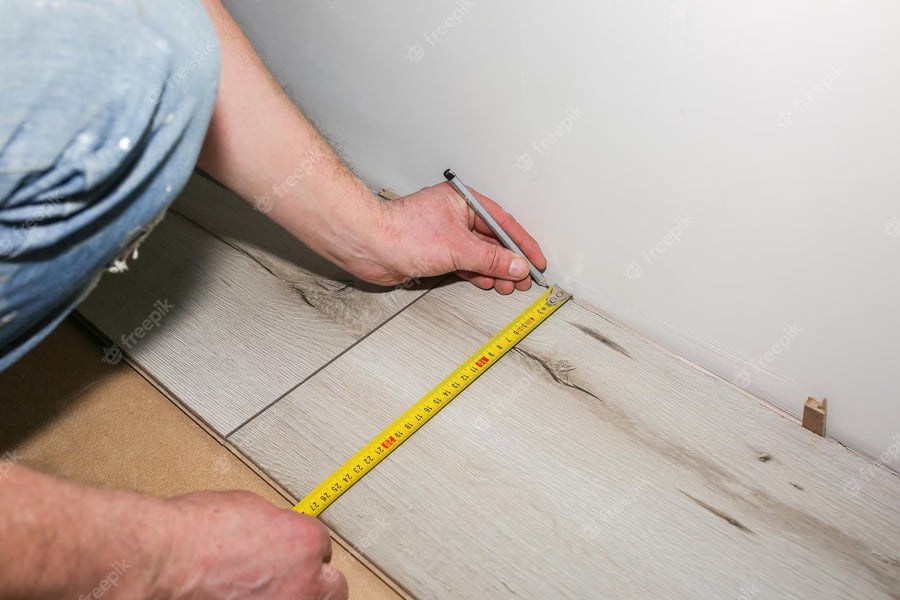
A Closer Look At What Are Subfloor Screws?
Subfloor screws are specialized fasteners engineered explicitly for the purpose of anchoring the subfloor securely to the joists that lie beneath. Unlike traditional nails or generic screws, subfloor screws are crafted to offer an enhanced level of strength and stability. This helps to ensure that the subfloor doesn’t move, creak, or degrade over time, thus maintaining the integrity of the flooring and the overall structure.
The options for subfloor screws are abundant, with a spectrum of sizes, materials, and finishes available. This allows you to tailor your selection according to the specifics of your project, including the type of wood you’re working with, the environmental conditions the structure will face, and your aesthetic preferences.
Material and Design
A common material for subfloor screws is stainless steel, prized for its corrosion-resistant properties. Stainless steel subfloor screws offer durability and longevity, ensuring that your flooring structure remains robust for years to come. However, you can also find subfloor screws made from other durable materials like high-strength steel alloys, which might be coated with corrosion-resistant finishes like zinc or galvanized steel.
Installation
Subfloor screws are meant to be installed using a power drill or screwdriver, providing a firm, lasting connection between the subfloor and the joists. The design of these screws often includes features like self-tapping tips, which make it easier to drive them into hard or dense materials without pre-drilling.
Sizes and Types
These screws come in various sizes and lengths to accommodate the thickness of your subfloor and the depth of the joists. When choosing a screw, you’ll also need to consider its head design. Subfloor screws can have round heads, which are often easier to sink into the material, or flat heads, which can offer a flush finish. The head type you choose will depend on the tool you’re using for installation and the look you desire.
Different Types of Subfloor Screws
When it comes to subfloor screws, there are two main types: self-tapping screws and wood screws. Self-tapping screws are designed to drill into the joists and create their own threads for a secure fit. They are available in various sizes and lengths and are ideal for use in softwood or plywood subfloors. Wood screws, on the other hand, are designed to thread into pre-drilled holes in the joists. They provide a stronger connection and are best used in hardwood subfloors.
Both types of screws are available in both round and flathead designs. Roundhead screws are designed to be driven into the joists with a drill or screwdriver, while flathead screws are designed to be driven into pre-drilled holes with a screwdriver. Both types of screws can provide a strong connection between the subfloor and the joists, but it’s important to choose the right type of screw for your project.
Subfloor screws are not a one-size-fits-all solution; they come in various types to cater to different needs, materials, and installation methods. The two primary categories are self-tapping screws and wood screws.
Self-Tapping Screws
Self-tapping screws are engineered with a unique ability to create their own threads as they are drilled into the material. This eliminates the need for a pre-drilled hole, thereby saving time and reducing the likelihood of errors during installation. These screws are especially advantageous for softwood or plywood subfloors where the material is not too dense, allowing for easier penetration. The self-tapping feature ensures a snug, secure fit that holds the subfloor firmly in place. Self-tapping screws come in a range of sizes and lengths, giving you the flexibility to select the most appropriate size for your specific project requirements.
Wood Screws
Wood screws, in contrast, are generally used for harder wood materials like hardwood subfloors. These screws require pre-drilled holes in the joists to ensure precise placement and to minimize the risk of splitting the wood. Because they’re designed to thread into these holes, they often offer a stronger, more durable connection compared to self-tapping screws when used in harder materials. Their design allows for greater torque, ensuring a tighter bond between the subfloor and the joists.
Head Designs
Both self-tapping and wood screws are available in different head designs—mainly round and flathead. Roundhead screws are generally easier to drive into the joists, as their design is less likely to cause the material to split. These are best used when you need the screw to sit above the material’s surface. Flathead screws, conversely, offer a flush finish, meaning the head of the screw will sit level with the surface of the material. These are optimal for situations where a smooth, unobtrusive finish is desired.
Making the Right Choice
Choosing between self-tapping and wood screws will largely depend on the material of your subfloor and joists, as well as the tools you have at hand for installation. It’s crucial to assess these factors carefully to ensure you select the right type of screw for your specific project, as this will have a significant impact on the overall durability and stability of your flooring structure.
How to Choose the Best Subfloor Screws
When it comes to choosing the best subfloor screws for your project, there are several factors to consider. First, you’ll want to consider the material of the subfloor. Different types of subfloor materials require different types of screws. For example, softwood and plywood subfloors are best secured with self-tapping screws, while hardwood subfloors are best secured with wood screws.
You’ll also want to consider the size of the screws. The size of the screw should be matched to the size of the joist. If the screw is too small, it may not provide a secure connection, while if it’s too large, it may split the joist. It’s important to measure the joists before purchasing screws to ensure you get the right size.
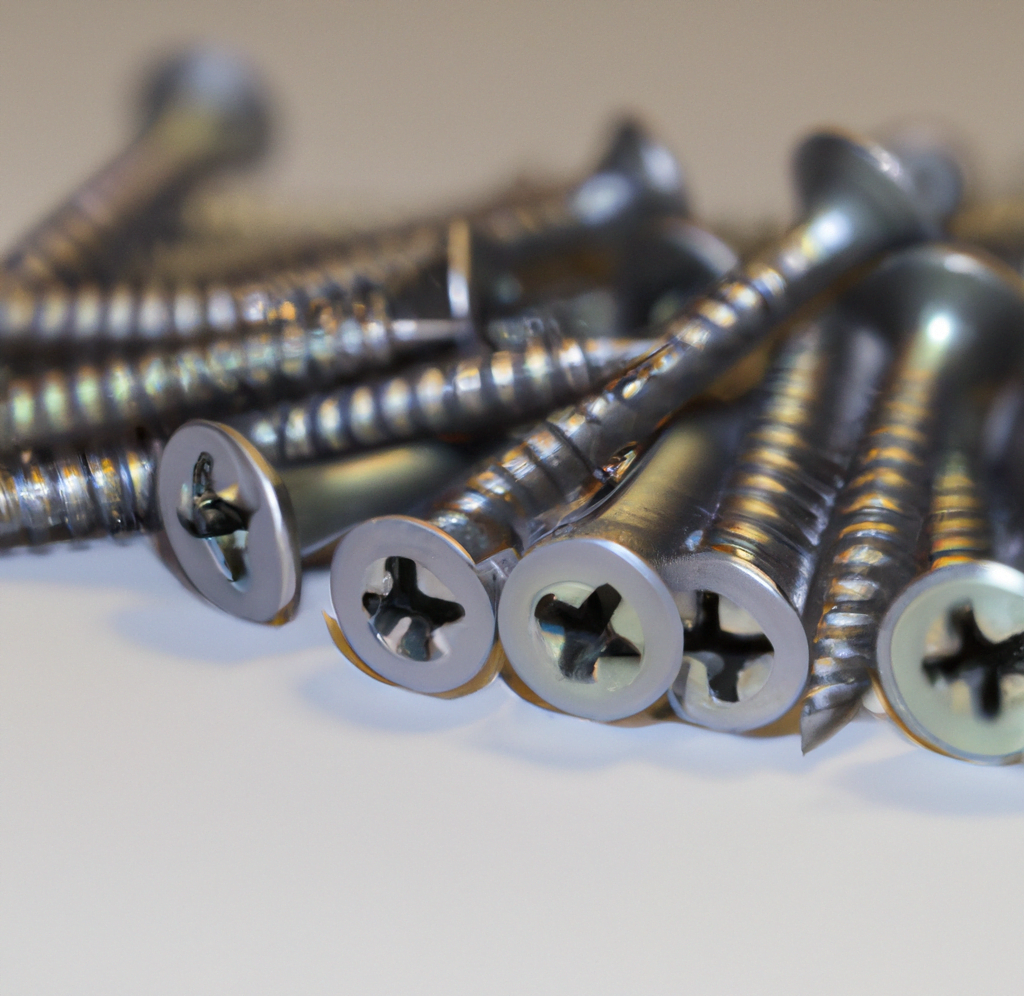
Finally, you’ll also want to consider the length of the screws. For subfloors, it’s best to use screws that are at least 3 inches long to ensure a secure connection. Shorter screws may not provide a secure connection, while longer screws may split the joists.
Factors to Consider When Choosing Subfloor Screws
When choosing subfloor screws, there are several factors to consider. First, you’ll want to determine the type of subfloor material you’re working with. Different types of subfloors require different types of screws. Softwood and plywood subfloors are best secured with self-tapping screws, while hardwood subfloors are best secured with wood screws.
You’ll also want to consider the size of the screws. The size of the screw should be matched to the size of the joist. If the screw is too small, it may not provide a secure connection, while if it’s too large, it may split the joist. It’s important to measure the joists before purchasing screws to ensure you get the right size.
Finally, you’ll also want to consider the length of the screws. For subfloors, it’s best to use screws that are at least 3 inches long to ensure a secure connection. Shorter screws may not provide a secure connection, while longer screws may split the joists.
Again, in a more detailed explanation, when selecting the best subfloor screws for your construction or renovation project, the decision-making process should involve a thorough consideration of several key factors. These factors can significantly impact the durability and performance of your subfloor, so it’s crucial to make an informed choice.
- Subfloor Material: The first aspect to consider is the type of subfloor material you are working with. Different materials have unique characteristics that necessitate the use of particular types of screws. For example, softwood and plywood subfloors often benefit from self-tapping screws, which can penetrate the material without the need for a pilot hole. On the other hand, hardwood subfloors generally require wood screws that are designed to hold tightly in dense materials without causing splits.
- Screw Size Relative to Joist Size: The next factor to weigh is the size of the screws in relation to the size of the joists they will be fastened to. A poorly sized screw can result in a weak connection or even damage to the joist. Too small a screw may not anchor securely, whereas a screw that’s too large could split the joist. Before making a purchase, measure the dimensions of the joists carefully, and consult any available construction guidelines or experts to determine the optimal screw size.
- Screw Length: The length of the screws is another important consideration. For subfloors, screws should generally be at least 3 inches long to ensure that they penetrate deeply enough into the joists to form a secure connection. Screws that are too short may fail to provide adequate anchorage, which can result in a squeaky or unstable floor. Conversely, screws that are excessively long pose a risk of splitting the joists, compromising the structural integrity of the floor.
- Additional Features: It’s also worth considering any extra features that some subfloor screws might offer, such as corrosion resistance or specially designed heads for improved countersinking. These additional features can enhance the longevity and aesthetic finish of your subfloor.
In summary, choosing the right subfloor screws involves much more than a trip to the hardware store. It’s a critical decision that requires thoughtful consideration of the material type, screw size relative to the joist, and screw length. When in doubt, consult with professionals or trusted guidelines to make the most appropriate choice for your specific project.
Benefits of Subfloor Screws
Subfloor screws offer several benefits over traditional nails. They provide a stronger connection between the subfloor and the joists, reducing the risk of floor squeaks. They also provide a more secure connection and are less likely to come loose over time. And, because they are self-tapping, they are easier to install than traditional nails.
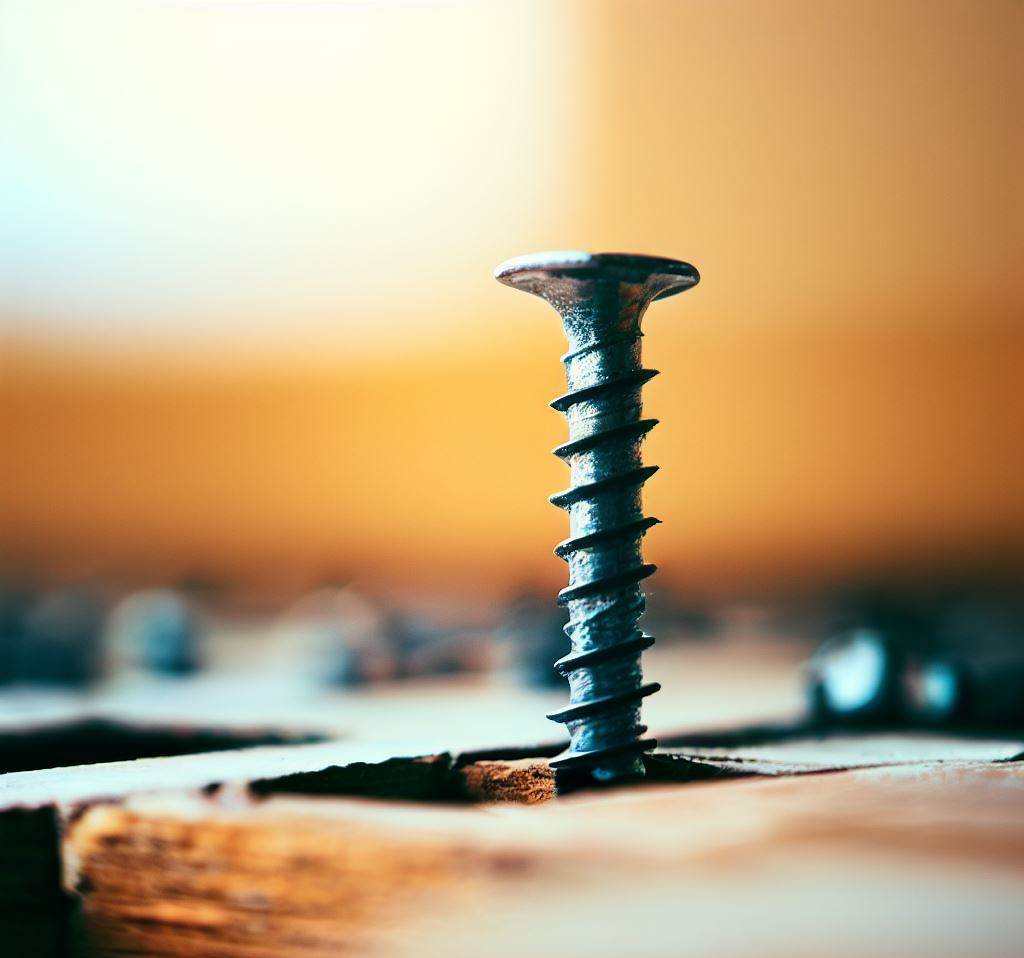
Subfloor screws also offer a more aesthetically pleasing look than traditional nails. They provide a clean, finished look and can be easily hidden with molding or trim. And, because they are available in a variety of sizes and finishes, you can find the right screws to match your decor.
Advantages of Using Subfloor Screws
Subfloor screws come with a host of benefits that make them a preferable alternative to traditional nails in many scenarios. Here’s a detailed look at why they often prove to be the better choice:
Structural Integrity
One of the most significant benefits of using subfloor screws is the enhanced structural stability they offer. Unlike nails, which can gradually work their way out due to the natural contraction and expansion of materials, screws provide a firmer grip. This reduces the possibility of a shifting subfloor, thereby diminishing the likelihood of floor squeaks, an issue often faced in homes and buildings.
Ease of Installation
The self-tapping nature of many subfloor screws eliminates the need for pre-drilling holes, making the installation process quicker and more straightforward. This ease of installation not only saves time but also reduces the margin for error, thereby ensuring a more secure fit.
Aesthetic Appeal
Subfloor screws also win points in the aesthetics department. When properly installed, they can give a clean, polished appearance to the subfloor, free of the hammered-in look that comes with nails. Any visible screw heads can be easily concealed with complementary trim or molding, allowing for a sleek and unobtrusive finish.
Versatility in Design
Subfloor screws are available in an array of sizes, lengths, and finishes. Whether you’re going for a modern, rustic, or traditional look, you can find screws that will align with your decor. This versatility makes them an adaptable choice for various design schemes.
Longevity and Durability
The construction of subfloor screws, often made from corrosion-resistant materials like stainless steel, adds another layer of durability. They are designed to withstand long-term stresses, meaning your subfloor will remain secure for a longer period compared to using traditional nails.
Different Types of Subfloor Materials
Subfloors are typically made from either softwood or hardwood materials. Plywood and OSB (oriented strand board) are both softwood materials, while hardwood subfloors are typically made from solid wood such as oak or pine. Each type of material requires a different type of subfloor screw for a secure connection.
Softwood subfloors are best secured with self-tapping screws, while hardwood subfloors are best secured with wood screws. It’s important to choose the right type of screw for your project to ensure a secure connection.
Understanding the Varied Types of Subfloor Materials and the Right Screws for Each
Subfloors serve as the backbone of your flooring, and the material you choose plays a vital role in your construction or renovation project. Generally, the two main categories of subfloor materials are softwood and hardwood, and each has specific characteristics that dictate the kind of screws suitable for securing them.
The Softwood Category: Plywood and OSB
Softwood subfloors, often made from Plywood or OSB (Oriented Strand Board), are commonly used in residential construction due to their affordability and ease of installation. These materials are relatively softer than hardwoods, meaning they are more forgiving when it comes to the screws used.
Recommended Screws for Softwood: Self-Tapping Screws
For softwood subfloors, self-tapping screws are generally the best choice. These screws are designed to penetrate the material and create their own threads as they are driven in, eliminating the need for pre-drilled holes. This makes the installation process faster and more straightforward, which can be beneficial for large projects or DIY enthusiasts.
The Hardwood Category: Solid Woods like Oak and Pine
On the other end of the spectrum, you have hardwood subfloors, usually made from solid woods like oak or pine. These materials are denser and provide a sturdier base but often require more effort to install.
Recommended Screws for Hardwood: Wood Screws
For hardwood subfloors, wood screws are the best option. Unlike self-tapping screws, wood screws are designed to be used in conjunction with pre-drilled holes. They provide a very strong connection due to their ability to thread securely into the denser material. This ensures that the subfloor remains stable, especially crucial in high-traffic areas or where heavy furniture will be placed.
The Importance of Material-Specific Screws
Choosing the right screw type is not just a minor detail; it’s crucial for the longevity and stability of your subfloor. Using the wrong type of screw can result in an unstable subfloor, which can lead to a host of problems down the line, including squeaky floors or even structural failure.
Best Subfloor Screws for Plywood Subfloors
For plywood subfloors, it’s best to use self-tapping screws. Self-tapping screws are designed to drill into the joists and create their own threads for a secure fit. They are available in various sizes and lengths and are ideal for use in softwood or plywood subfloors.
When selecting self-tapping screws for plywood subfloors, it’s important to choose the right size. The size of the screw should be matched to the size of the joist. If the screw is too small, it may not provide a secure connection, while if it’s too large, it may split the joist. It’s important to measure the joists before purchasing screws to ensure you get the right size.
You may also want to read about deck screws vs wood screws, the best mdf screws, and the best metal roofing screws.
Optimal Subfloor Screw Choices for Plywood Surfaces
When dealing with plywood subfloors, self-tapping screws are often the go-to choice for professionals and DIY enthusiasts alike. But what makes them particularly well-suited for plywood, and what should you consider when selecting them? Let’s delve deeper:
Self-Tapping Mechanism
Self-tapping screws are engineered to cut their own threads as they are driven into the material. This self-threading action allows for quicker installation and a more secure grip in softer wood types, making them a top pick for plywood subfloors.
Variety in Sizes and Lengths
Self-tapping screws come in an array of sizes and lengths, allowing for customization according to the specific needs of your project. However, it’s not a one-size-fits-all situation.
Importance of Proper Sizing
Size matters a lot when it comes to screws. A screw that is too small may fail to hold the subfloor securely, risking instability. On the other hand, a screw that’s too large can cause the wooden joist to split, undermining the structural integrity of the entire flooring system.
Pre-Purchase Measurements
Before you head to the hardware store or place an online order, it’s crucial to measure the dimensions of your joists accurately. Knowing the thickness and depth of your joists will help you choose a screw length that neither protrudes too much nor falls short, ensuring optimal engagement and grip.
To summarize, self-tapping screws are ideal for plywood subfloors because of their ease of installation and secure fitting capabilities. However, choosing the right size based on accurate measurements of your joists is critical for a successful installation.
Best Subfloor Screws for Wood Subfloors
For hardwood subfloors, it’s best to use wood screws. Wood screws are designed to thread into pre-drilled holes in the joists. They provide a stronger connection and are best used in hardwood subfloor.
When selecting wood screws for hardwood subfloors, it’s important to choose the right size. The size of the screw should be matched to the size of the joist. If the screw is too small, it may not provide a secure connection, while if it’s too large, it may split the joist. It’s important to measure the joists before purchasing screws to ensure you get the right size.
Ideal Subfloor Screws for Hardwood Flooring
When you’re working with hardwood subfloors, the type of screw you choose is paramount for ensuring a durable and reliable floor structure. Wood screws are the traditional choice for hardwood flooring applications, and in this guide, we’ll delve into why that is the case and what factors you should consider for optimal results.
Why Choose Wood Screws?
Wood screws are specifically engineered to be used with harder wood materials, which is why they’re an ideal choice for hardwood subfloors. Unlike self-tapping screws, wood screws are meant to thread into pre-drilled holes in the joists. This provides a much stronger connection, as the threads of the screw are designed to engage firmly with the wood fibers, offering a high level of tensile strength.
Understanding Screw Sizing
When it comes to wood screws, the size of the screw needs to be compatible with the dimensions of the joist to which it will be anchored. A mismatch in size can lead to a host of problems.
Risks of Improper Sizing
Selecting a screw that is too small in diameter or length may not offer the necessary grip, leading to a less stable floor. On the flip side, a screw that is too large could over-stress the wood, causing the joist to split and thereby compromising the structural integrity of the entire floor.
Measure Before You Purchase
To circumvent such issues, always measure your joists accurately before you purchase your screws. Determine both the depth and width of your joists to ensure that you choose screws that will neither protrude excessively nor fall short of penetrating adequately for secure anchorage.
In summary, when working with hardwood subfloors, wood screws are your best option due to their design and strong grip. However, careful attention must be paid to the size of the screws in relation to the dimensions of your joists to ensure a solid, long-lasting installation.
Best Rated Subfloor Screws
When selecting subfloor screws, it’s important to choose a product that is highly rated and recommended by professionals. Some of the best-rated subfloor screws include the GRK Fasteners Multi-Purpose Structural Screws, the Simpson Strong-Tie Subfloor-to-Joist Connector Screws, and the FastenMaster’s HeadLOK Flathead Fastener.
These screws are designed to provide a secure connection between the subfloor and the joists and are available in a variety of sizes and lengths. They are also made from corrosion-resistant stainless steel for maximum durability.
You may also want to read about Torx wood screws and heavy duty wood screws.
Selecting the Top-Rated Subfloor Screws
When it comes to ensuring a stable and long-lasting subfloor, not just any screws will do. The market is flooded with various brands and types, but for a project as critical as a subfloor, it’s crucial to rely on screws that are highly rated and backed by industry professionals. In this context, a few standout choices have proven to be consistently reliable.
Why Professional Recommendations Matter
Screws that come highly recommended by professionals in the construction industry are usually subjected to rigorous testing and quality control. They often meet or exceed industry standards, ensuring that they will provide a robust and durable connection between your subfloor and the underlying joists.
Popular Choices Among Professionals
Among the best-rated subfloor screws are the GRK Fasteners Multi-Purpose Structural Screws, the Simpson Strong-Tie Subfloor-to-Joist Connector Screws, and the FastenMaster’s HeadLOK Flathead Fastener. Each of these options has unique features that make them particularly effective for subfloor installations.
Versatility in Sizing
These screws are available in an extensive range of sizes and lengths, allowing you to choose the perfect fit for your specific project requirements. Having the right size ensures that the screw adequately penetrates the material, providing a secure and stable connection.
Material Matters: Corrosion-Resistant Stainless Steel
Additionally, these top-rated screws are manufactured from corrosion-resistant stainless steel. This is a crucial factor, especially in areas prone to moisture, as the screws won’t rust over time. This translates to a longer lifespan for your subfloor and by extension, a more durable structure overall.
In summary, when selecting subfloor screws, it’s not just about size and length; the brand and material are equally vital. Opting for screws that are well-rated and professionally endorsed, like those mentioned above, ensures that your subfloor will stand the test of time and provide a stable base for your structure.
Subfloor screws are an essential part of any construction or renovation project. They provide a secure connection between the subfloor and the joists and are available in a variety of sizes, materials, and finishes. When choosing subfloor screws, it’s important to consider the type of subfloor material, the size of the screw, and the length of the screw. Different types of subfloors require different types of screws, so it’s important to choose the right type of screw for your project.
For plywood subfloors, it’s best to use self-tapping screws, while hardwood subfloors are best secured with wood screws. When selecting screws, it’s important to choose a product that is highly rated and recommended by professionals.
If you’re looking for the best screws for your subfloor, look no further than GRK Fasteners Multi-Purpose Structural Screws, the Simpson Strong-Tie Subfloor-to-Joist Connector Screws, and the GRK Fasteners Multi-Purpose Structural Screws. These screws are designed to provide a secure connection between the subfloor and the joists and are made from corrosion-resistant stainless steel for maximum durability.
So, when it comes to finding the best screws for your subfloor, make sure to do your research and choose the right type of screw for your project. With the right screws, you’ll be able to ensure a secure connection between the subfloor and the joists and enjoy a floor that is strong and durable for years to come.
You may want to read also about how to measure screw size.
Disclaimer: This article is intended for informational purposes only and does not constitute professional advice. Always consult with a licensed contractor or construction professional for your specific needs.
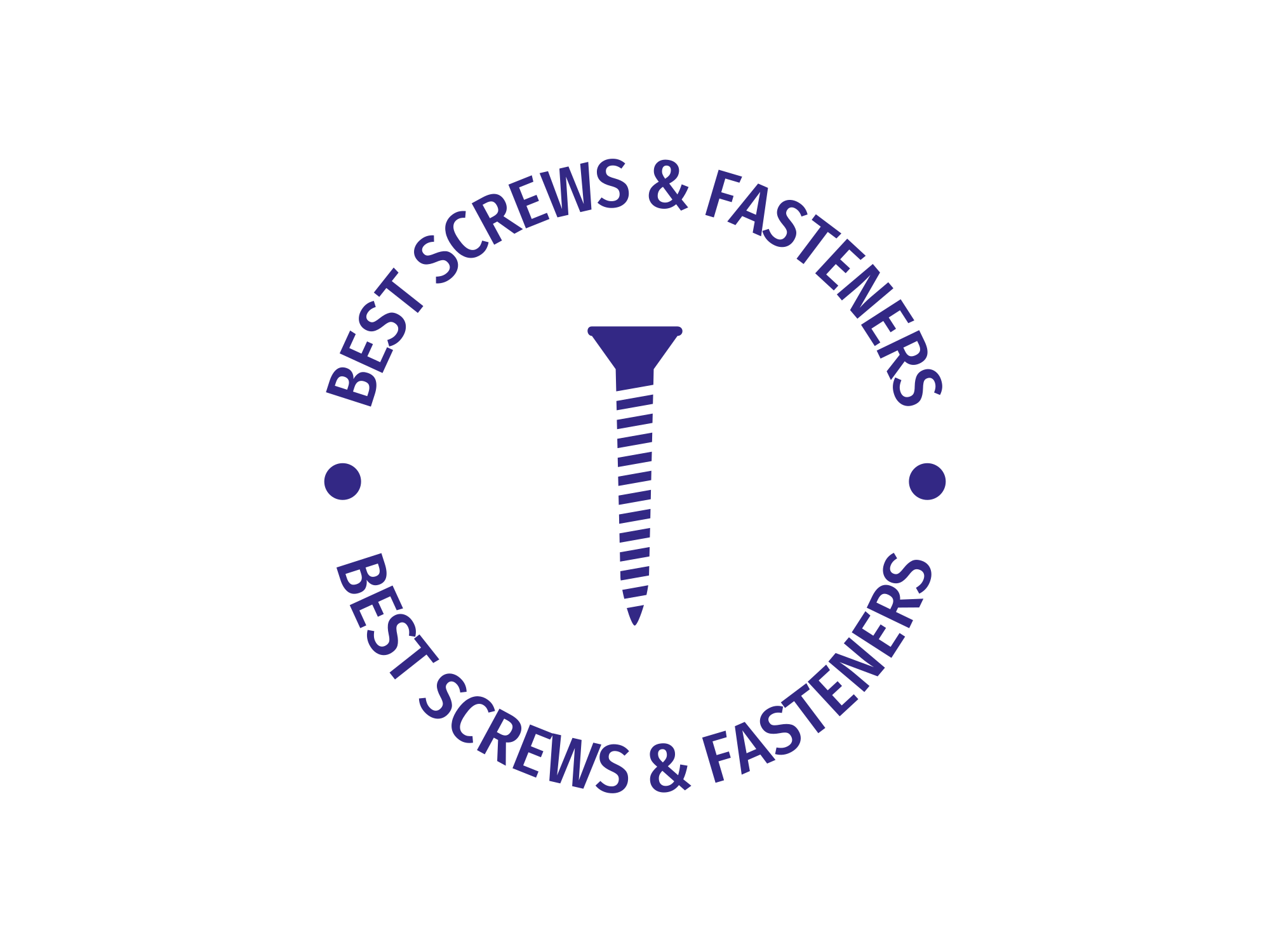
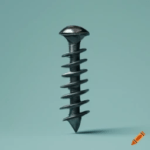
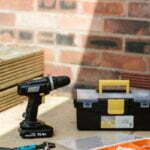
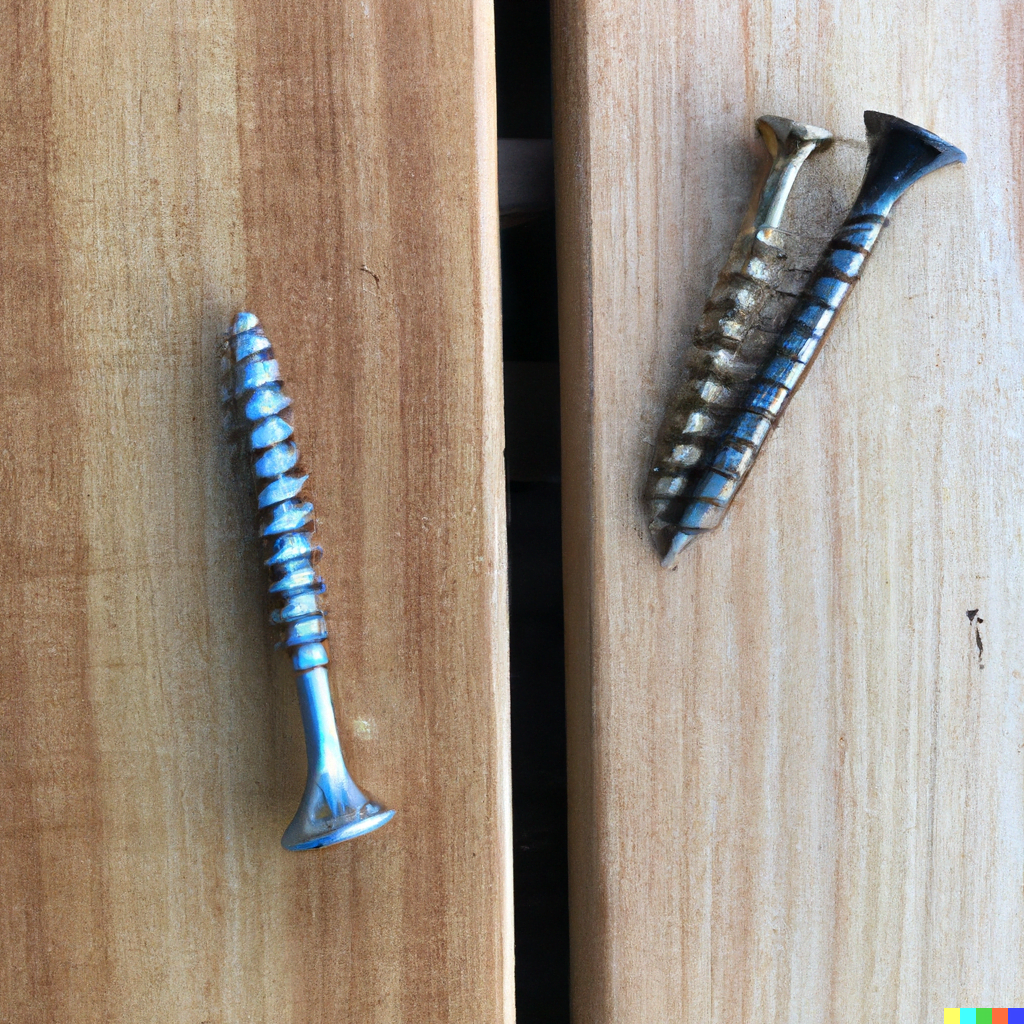
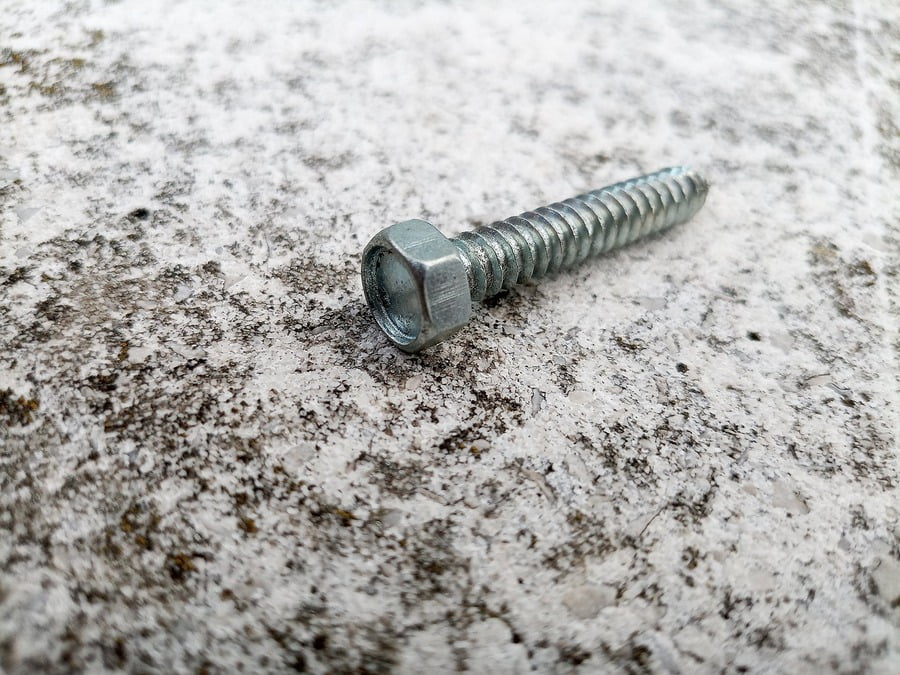
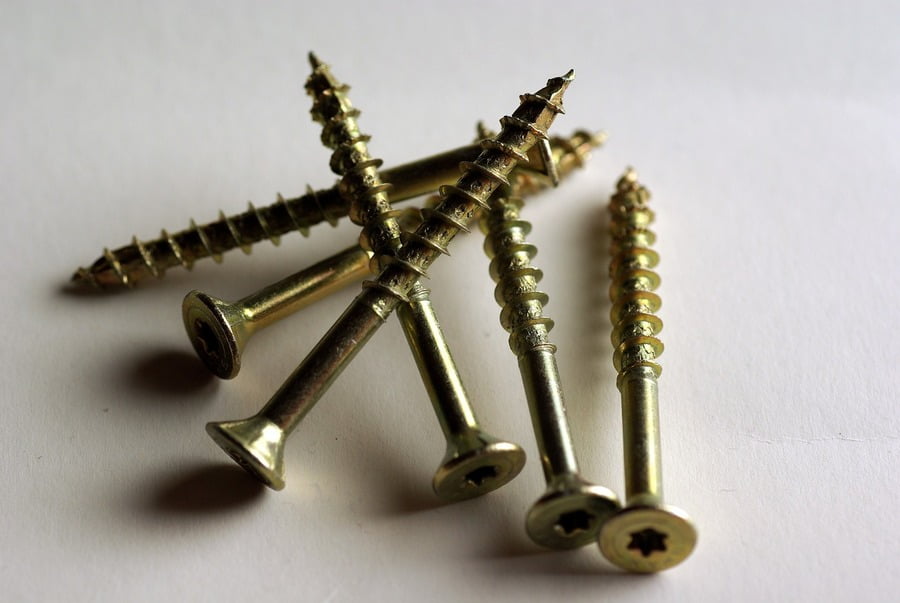
No Comments